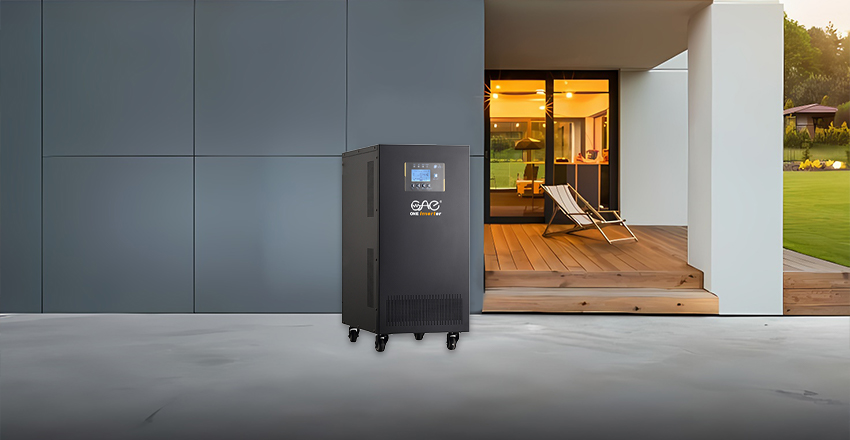One of the groundbreaking technologies in PG systems that plays a continuous role in optimizing solar-powered irrigation systems is the solar pump inverter. Solar pump inverter is a device that converts the DCSUNlight captured by solar panels to AC current that is required to drive irrigation pumps. The inverters are involved in at least some stage of the energy conversion process. They change the semiconductors into renewable energy, such as Solar energy, and use the energy for farmers and farmers momentarily, in precise, for irrigation. Here’s how solar pump inverters can boostfarming productivity.

With solar pump inverters, farmers can utilize solar energy more efficiently, maximizing the capabilities of their irrigation systems. Solar pump inverters also convert solar energy into the necessary frequency and voltage for pumps to ensure that the irrigation system operates efficiently. This means that your irrigation systems convert more of the available sunlight into usable energy, which is a much better way of irrigating your crops than if more grid power is used.
With maximum power point tracking (MPPT) technology, these inverters automatically adjust the input to the solar pump to keep the system operating at all times under various weather conditions (e.g. cloud cover or change in sun intensity). MPPT optimizes the performance of the irrigation system by following the maximum power point so that the pump works at its maximum efficiency.
One of the key benefits of solar pump inverters is that they can help minimize or completely eliminate a farm’s reliance on grid-connected utility electricity or fuel-based generators to irrigate crops. Conventional pumping systems are often powered by diesel or electricity from the grid that is expensive and not environmentally friendly. Conversely, using renewable energy, solar-powered pumping systems drastically lower irrigation operational costs.
Farmers can operate irrigation systems entirely off solar power with solar pump inverters, minimizing the need for fuel or electricity bills. This can lead to significant savings, especially in remote regions where access to grid power is uncertain or costly.
Proper management of water ensures optimal crop growth, but it is only possible when the farm receives water evenly, which is enabled with solar pump inverters. These inverters can be connected with automated irrigation systems that supply water on-demand, increasing the chances of crops receiving water at the right time and quantity.
Furthermore, farmers can regulate water flow rate according to crop specifications using solar pump inverters based on variable frequency drives (VFDs). This avoids overrunning and saves water, crucial for regions in water scarcity or drought. Proper irrigation systems also mitigate the risks of crop diseases and improve soil quality by avoiding excessive water runoff and soil erosion.
Modern solar pump inverters are typically integrated with cutting-edge monitoring and control functionalities, enabling farmers to monitor their irrigation systems from a distance. Farmers can monitor parameters such as pump status, energy production, water flow, and system performance in real time through integrated mobile apps or online platforms.
These remote control irrigation system is very useful in large scale farms or those which are in remote locations. It enables farmers to monitor for any potential issues — pump faults, power blackouts, that sort of thing — and fix them before they escalate into serious problems.” Farmer use this real-time data to make estimates on how to use water in the fields which saves energy and helps with paddy, groundnut and summer crop yield.
Solar pump inverters are built to be rugged and sturdy to endure harsh environmental conditions, including changing temperatures, humidity, dust or moisture exposure, etc. They include features like overload protection, overvoltage protection, and surge protection to ensure that the system is always operational, even in a harsh condition.
They also protect the pump from being damaged and when it optimizes the performance of the pump, solar pump inverters broaden the life span of irrigation system. This translates to reduced maintenance, reduced repairs, and ultimately a longer operational life of the machinery, all of which increasing the overall efficiency of the farming operation.
Farming efficiency is not just about improving productivity but also about creating sustainable farming practices that are less reliant on non-renewable resources. Solar pump inverters contribute to this goal by providing a clean, renewable energy solution. By utilizing solar power for irrigation, farms can reduce their carbon footprint, lower greenhouse gas emissions, and contribute to a greener environment.
As solar energy becomes more affordable and widely available, farms can achieve greater energy independence. Solar pump inverters ensure that energy is harnessed and used as efficiently as possible, reducing the need for external energy sources and promoting sustainable farming practices.
Solar pump inverters offer a range of benefits that can dramatically improve farming efficiency. From maximizing the use of renewable solar energy to reducing water waste and lowering operating costs, these inverters help farmers streamline their irrigation processes, increase crop yields, and achieve sustainable farming practices. With the added advantages of remote monitoring, system durability, and energy independence, solar pump inverters are becoming an indispensable tool for farmers seeking to optimize their operations and reduce their environmental impact.